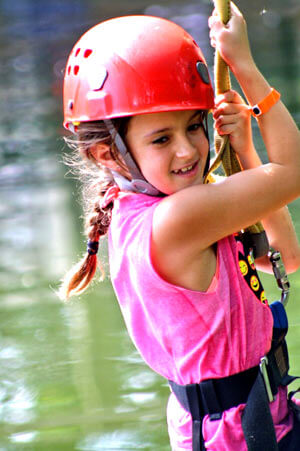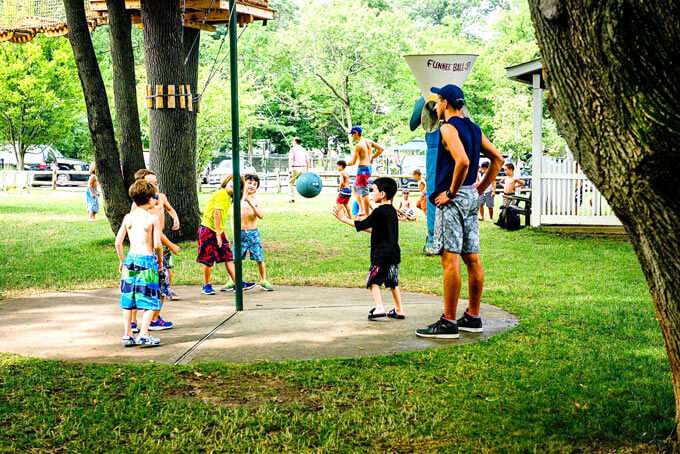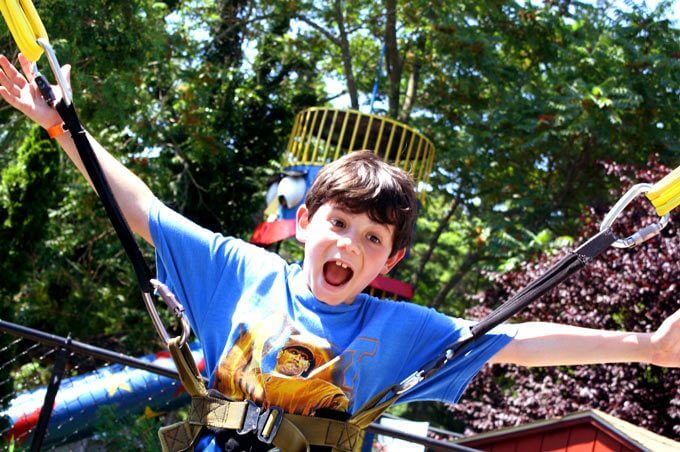Our favorite things about camp, straight from our annual Camp Guide!
Summer camp provides children with an amazing summer experience, making it difficult to narrow down the reasons why camp is so great. Here is a list of ten awesome things about summer camp. I’m sure after one summer at camp, your child will be able to come up with dozens of more ways that the camp experience is so awesome!
- Gain skills in a range of activities – Whether your child goes to day or sleepaway camp, your child will participate in a variety of activities including swimming, waterskiing, tennis, boating, ropes course, and so much more. Your child will try new activities that he or she may never have had a chance to try.
- Gain life skills needed to be a successful adult – According to research done by the Partnership for 21st Century learning, the skills needed to be successful in the 21stcentury include communication, creativity, leadership, responsibility, and collaboration—all skills incorporated into many summer camp programs. At camp, children develop these skills needed to become secure, contributing, successful adults. “Camp isn’t just about sports, arts, and waterskiing. The true heart of the camp formula is the well-being of the camper,” comments Scott Rothschild, director of Kenmont and Kenwood Camps, brother/sister overnight camps in CT. “Camp provides children with many growth opportunities that really fuel the success of a camper like helping them make individual decisions, learning to work well with others, being a leader, gaining confidence, and building confidence.”
- Children can reinvent themselves – At home, children have gone to school with the same children for years and children may be labeled as the shy or the athletic one. At camp, your child can reinvent himself. Camp is an accepting community and a child can be themselves at camp.
- Build Resilience – Camp gives children many opportunities to build resilience. “At camp, children are exposed to many new activities and things they may have never done before. The definition of success at camp is simply that a child be willing to try these new things,” says Will Pierce, an owner and director of Pierce Country Day Camp and an owner of Pierce Camp Birchmont, an overnight camp in NH. “Unlike in other environments, there is no expectation that to be successful a camper also has to be good at them. When you have a community that is intentionally structured to make the goal attempting to do something, rather than succeeding at something, you increase the opportunities to build resilience. Our campers know that just by attempting to climb the wall or shoot an arrow, they are succeeding. It makes them that much more willing to try something, and even if they fail, to try it again. Eventually they can climb the wall a little higher, or hit the target a little closer to the bullseye, and together we’ve not only achieved a measure of objective success in the activity, but more importantly we’ve built a whole lot of resilience along the way.”
- Meet new people – Camp fosters deep friendships and allows children to meet children from different communities as well as from around the world. Children also have the opportunity to relate to people of all ages at camp.
- Self-reliance– Today’s children are in constant contact with their parents through texting and cell phone calls. Camp gives children a healthy separation from their parents, fostering independence. “Simple chores like making a bed, sorting laundry and even picking out their clothes for the day are important tasks that children learn when they are at camp and away from their parents,” says Scott Rothschild.
- Unplug from technology – According to a Kaiser Family Foundation survey of young people, children spend 7.5 hours a day engaged in electronic media including cell phones, computers, TV, and video games. Instead of engaging in human interactions, children are staring at screens throughout the year. The majority of summer camps have a no technology rule. Will Pierce says both Pierce Country Day Camp and Pierce Birchmont are unplugged. “We have a no technology rule for the basic reason that electronic devices seemed antithetical to many of the core values of camp: being outside in nature, focusing on the people in our community who are present, and trying new activities we don’t have at home. Young people often feel a lot of pressure to be constantly up to date and engaged with their peers via social media and texting. Camp has become a welcome break from that pressure and has positively influenced the way they view and use their electronic devices. Campers and staff members have actually thanked us for creating a community where everyone is required to take a break from their phones.”
- Children communicate face-to-face — “Because we live in such a technological age where everyone is wired via computers and phones, camp is truly ‘the last frontier’ where campers and staff can flourish as talkers and not online communicators,” comments Rothschild. “Our campers and staff connect through daily conversations at activities, evening campfires, flash light time before bed and even in the dining halls during our energetic mealtimes. Camp creates conversations that are person-to-person, not iPhone-to-iPhone.”
- Traditions – Many camps celebrate special traditions and rituals each summer. Children partake in these rituals such as color war, candles on the lake, and singing songs. These activities connect children to the generation of campers who came before them and to the history of the camp.
- Camp is fun – At camp, children are allowed to play in a safe and nurturing environment, and are allowed to just be kids. Play is a powerful form of learning that contributes mightily to the child’s healthy physical, emotional, social, and intellectual development. According to an American Academy of Pediatrics report, creative free play protects a child’s emotional development and reduces a child’s risk of stress, anxiety, and depression.
































